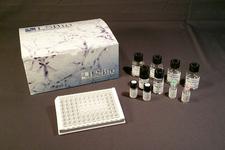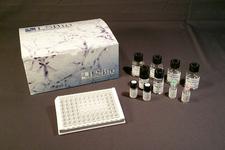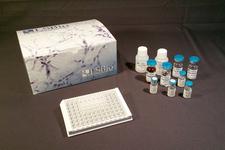order histories, retained contact details for faster checkout, review submissions, and special promotions.
Forgot password?
order histories, retained contact details for faster checkout, review submissions, and special promotions.
Locations
Orders Processing,
Shipping & Receiving,
Warehouse
2 Shaker Rd Suites
B001/B101
Shirley, MA 01464
Production Lab
Floor 6, Suite 620
20700 44th Avenue W
Lynnwood, WA 98036
Telephone Numbers
Tel: +1 (206) 374-1102
Fax: +1 (206) 577-4565
Contact Us
Additional Contact Details
order histories, retained contact details for faster checkout, review submissions, and special promotions.
Forgot password?
order histories, retained contact details for faster checkout, review submissions, and special promotions.
CCR6
chemokine (C-C motif) receptor 6
CCR6 is a member of the beta chemokine receptor family, which is predicted to be a seven transmembrane protein similar to G protein-coupled receptors. The gene is preferentially expressed by immature dendritic cells and memory T cells. The ligand of this receptor is macrophage inflammatory protein 3 alpha (MIP-3 alpha). This receptor has been shown to be important for B-lineage maturation and antigen-driven B-cell differentiation, and it may regulate the migration and recruitment of dentritic and T cells during inflammatory and immunological responses. Alternatively spliced transcript variants that encode the same protein have been described for this gene.
| Gene Name: | chemokine (C-C motif) receptor 6 |
| Family/Subfamily: | GPCR , Chemokine |
| Synonyms: | CCR6, C-c chemokine receptor 6, CD196 antigen, BN-1, C-C chemokine receptor type 6, C-C CKR-6, Chemokine c-c motif receptor 6, CKRL3, CMKBR6, Chemokine (C-C) receptor 6, Chemokine receptor-like 3, Cc chemokine receptor 6, CC-CKR-6, CCR-6, DCR2, DRY6, G protein-coupled receptor 29, DRY-6, G-protein coupled receptor 29, GPR29, GPRCY4, Strl-22, STRL22, CD196, CKR-L3, GPR-CY4, LARC receptor |
| Target Sequences: | NM_004367 NP_004358.2 P51684 |
Publications (2)





If you do not find the reagent or information you require, please contact Customer.Support@LSBio.com to inquire about additional products in development.









